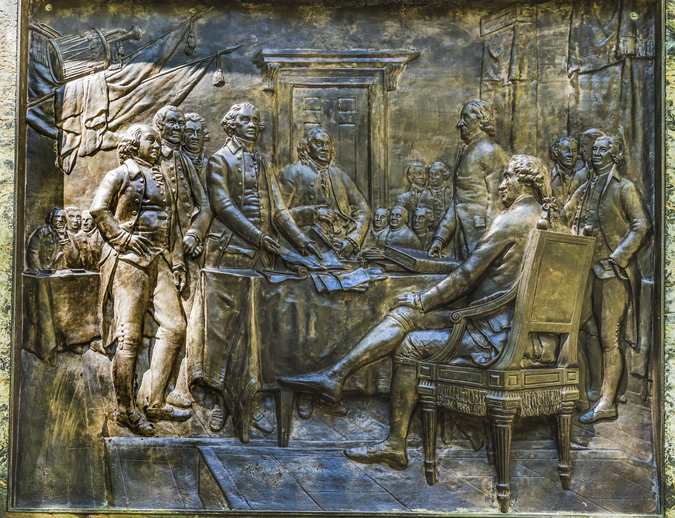Amid school shutdowns, continued union dominance, Critical Race Theory and falling learning standards, a prominent group of scholars has assembled a civics education program to revive teaching about history, democracy and tolerance in public schools.
The new proposal is welcome news to engaged parents and concerned citizens worried about the continued decline of academic standards, particularly in the area of civics. Given years of divisive teaching and Critical Race Theory, many parents see a renewed need to teach students about acceptance, mutual respect, good will and connectivity among all members of the community.
Research by the National Association of Scholars (NAS) shows that fewer students today know the essential facts about the founding and history of the American Republic. Even after years in public school, many students are ignorant of core dates and documents like 1776, 1800, 1860, 1932, 1963, 1987, the Declaration of Independence, the Gettysburg Address, Dr. King’s I Have a Dream speech or President Reagan’s speech at the Berlin Wall.
Instead, NAS research finds public school students receive a “relentless form of anti-American propaganda teaching that the United States is a uniquely evil and racist country, by means of deceptively named theories and pedagogies.” These hateful ideas in the classroom lead students to become angry and suspicious of one another, which is poor training for joining together in a spirit of community as adults.
The NAS recommends restoring true civics in public schools, saying students need:
“...civics education that teaches the founding principles and documents of the United States, the key events of American history, the structure of our self-governing federal republic, the functions of government at all levels, how our governing institutions work, and the spirit of liberty and tolerance that should animate our private interactions with our fellow citizens.
“Such civics education should teach students to take pride in what they share as Americans – an exceptional heritage of freedom, a republic that has succeeded in making liberty a fundamental principle of our government, and the joyful accomplishments of their common national culture.”
The NAS curriculum includes literacy in basic facts that make democracy work. The program includes well-grounded lessons in the rule of law, the Bill of Rights, elections, checks and balances, trial by jury and constitutional rights. Students taking the course learn how these principles emerged from the experience of Western Civilization and American history.
In Washington state this constructive idea is reflected in legislation introduced by Rep. James Walsh (R-Longview). HB 1807 would revive civics education and introduce students to a positive and uplifting message about living together a community that respects the dignity of all its members. My analysis of the bill is here.
The last few years have been hard on families and children. As learning standards fall and hurtful programs like CRT continue, fresh proposals to affirm civics learning are a timely and much-needed development.




